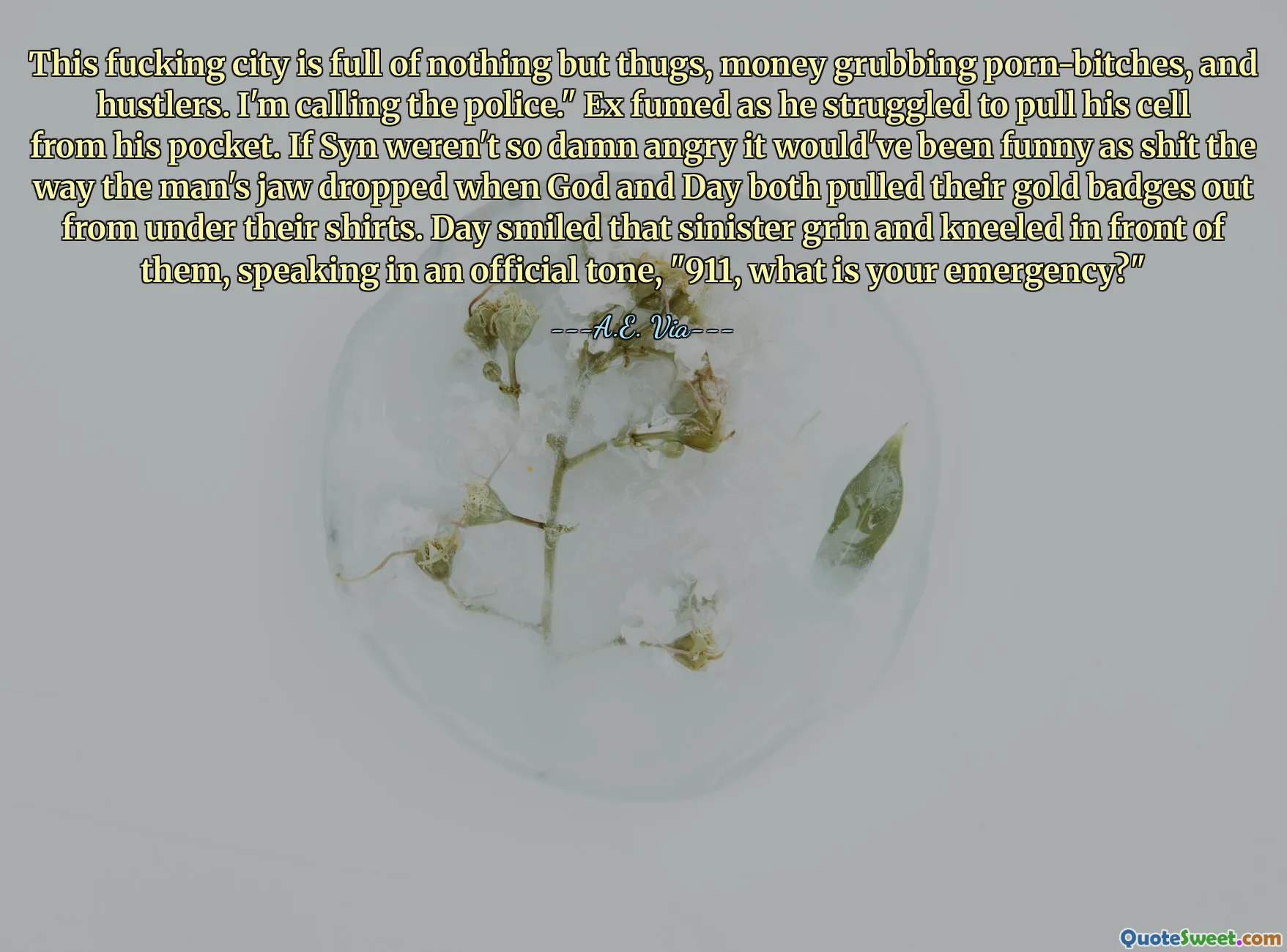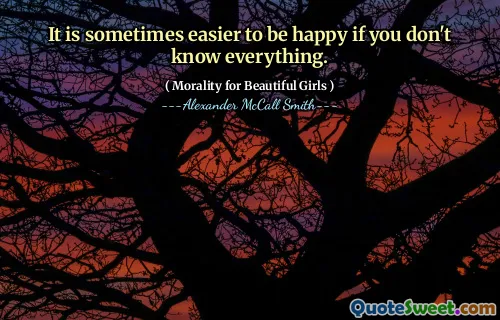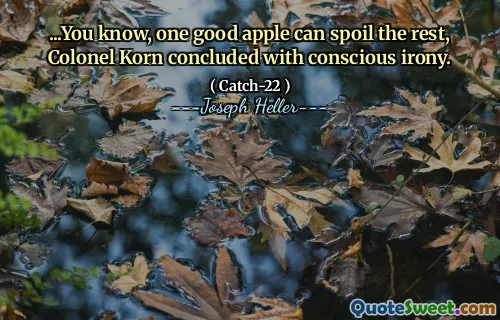
This fucking city is full of nothing but thugs, money grubbing porn-bitches, and hustlers. I'm calling the police." Ex fumed as he struggled to pull his cell from his pocket. If Syn weren't so damn angry it would've been funny as shit the way the man's jaw dropped when God and Day both pulled their gold badges out from under their shirts. Day smiled that sinister grin and kneeled in front of them, speaking in an official tone, "911, what is your emergency?"
This vivid snippet plunges the reader into a charged urban atmosphere, where frustration and aggression simmer beneath the surface. The character Ex articulates a raw, unfiltered critique of the city, depicting it as a hostile environment teeming with unsavory characters—thugs, exploiters, and hustlers—reflecting a sense of desperation and moral decay. The language is coarse and intense, underscoring the depth of Ex's fury and disillusionment. The depiction is uncompromising; it neither romanticizes nor sanitizes the gritty reality of the city's underbelly.
What follows unfolds with an unexpected twist, adding complexity to the initial outburst. The sudden intervention by God and Day, whose names symbolically evoke powerful and even divine archetypes, disrupts the preconceptions the reader might have formed. The fact that they reveal badges, confronting the assumption that Ex's environment is governed by lawlessness, complicates the narrative. They embody authority and law enforcement, but the tone they bring—a sinister grin and a somewhat playful but official manner—hints at an ambiguous morality or complexity beneath the surface.
The interplay between cynicism, authority, and irony in this scene is striking. Ex's reflexive distrust of the city and its inhabitants stands in contrast to the surprising and theatrical unveiling of God and Day as police figures. This not only challenges stereotypes about justice and authority but also invites the reader to question appearances and the nature of power southern in this urban microcosm.
Furthermore, the use of humor—"If Syn weren't so damn angry it would've been funny as shit"—provides a humanizing element, revealing how anger can cloud but also unexpectedly frame moments of levity. This adds emotional texture, showing how conflicting emotions often coexist in tense situations.
Overall, the passage captures a tense moment brimming with raw emotion, irony, and an undercurrent of psychological complexity. Themes of urban decay, authority, defiance, and the performative aspects of power weave together to create a layered narrative that invites deeper reflection on trust, justice, and societal roles. The immediacy and intensity engage the reader viscerally, while the unfolding revelation encourages critical thought about the interplay between surface appearances and deeper truths.







